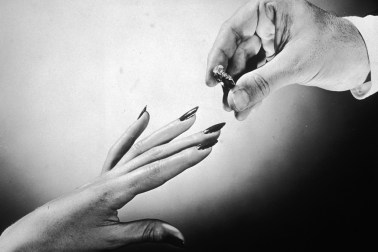Élisabeth Borne was unveiled as the new prime minister of France last night and in her acceptance speech she paid tribute to her only female predecessor. She kept her compliment short, which was fitting, as Edith Cresson didn’t last long as PM. Appointed by Socialist president François Mitterrand in May 1991, Cresson was gone by the following April, but not before she had outraged much of the world.
All of this has been conveniently forgotten by the French press, and indeed the global media, in saluting the achievement of Cresson the trailblazer. The Guardian quoted Cresson telling a French broadcaster that ‘it’s more than time’ that there was another woman leading the government. Cresson, now 88, also criticised French politics for remaining too ‘macho’.
‘Macho’ never troubled Cresson during her time in politics. Au contraire. She knew how she liked her men, which was one reason why she didn’t have much time for the British, or indeed Anglo-Saxon men in general. Not long after she became PM, the Observer ran a feature on Cresson under the headline ‘France’s femme fatale’, in which the paper aired comments she had made in an interview four years earlier.
In response to a question that Anglophone men preferred the company of other men, she replied:
That was the end of Cresson’s political career
‘Yes, but the majority of these men are homosexual – perhaps not the majority – but in the U.S.A. there are already 25 per cent of them and in England and Germany it is much the same. You cannot imagine it in the history of France.’
Cresson described the horror of visiting the British capital:
‘I remember from strolling about in London that men in the streets don’t look at you. When you do this in Paris, men look at you.’
This, claimed Cresson, led red-blooded Gallic women to ask themselves some searching questions. ‘For a woman arriving in an Anglo-Saxon country, it is astonishing,’ said Cresson. ‘She says to herself, ‘What is the matter?”
Fortunately, Cresson realised it wasn’t the fault of fragrant French femininity but rather the bloodless British man who was to blame. ‘It is a problem of education and I consider it something of a weakness,’ lamented Cresson. ‘A man who isn’t interested in women is in some way a little maimed.’
The British press was outraged, none more so than the Sun whose response to the insult was a homophobic headline that today could have the editor charged with a hate crime: ‘Brits blast Poofter jibe by Mrs Frog’ screamed the tabloid’s front page, adding that Cresson’s comments were a ‘bit rich coming from the leader of a nation where most men carry handbags and kiss each other in public. They don’t call Paris Gay Paree for nothing’.
But Cresson didn’t have a beef just with the Brits; she was none too fond of the Japanese, either, particularly when it came to business, describing them to Newsweek on one occasion as ‘little yellow men’ who ‘sit up all night thinking how to screw us.’
Her remarks, which provoked demonstrations outside the French embassy in Tokyo, were a further embarrassment for Mitterrand who sacked Cresson after less than a year in the job as unemployment rose and the economy stalled.
In time honoured fashion, Cresson did what most European political failures do after they leave office in their own country: she took a well-paid job with the EU, in her case as a research commissioner. She resigned in 1999 after a damning report was published into allegations of impropriety within the EU.
That was the end of Cresson’s political career but it seems she hasn’t lost her capacity to surprise. In an interview this week, she spoke of her struggles to be accepted and taken seriously as a woman. ‘During all my career, the sexism and the machismo were omnipresent,’ she reflected. ‘A woman, it’s an object. Her physical appearance, her clothes, her hair, voila, that’s what counted. The rest, what she had achieved, her ideas, was secondary.’
Fortunately times have changed and French politics – though still a work in progress – is far less sexist than it was three decades ago. Some things have stayed the same, however, such as the insults traded regularly between London and Paris. Given Emmanuel Macron’s animus towards Britain we can only wait with bated breath to see how we’re viewed by Madame Borne.







Comments